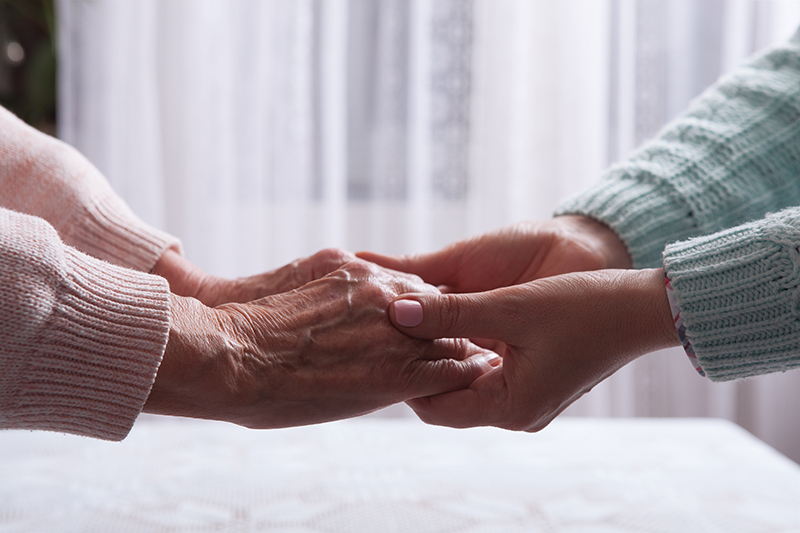How to Take Care of Yourself When You’re a Caregiver
You might be caring for someone else, but you need to prioritize your self-care as well.

| Find a Medicare Advantage Plan that's right for you. Click here. |
|---|
Being a caregiver to someone you love is a tender and rewarding job, but it is also one of the most physically and mentally demanding roles.
When someone else is requiring most of your energy, it can seem impossible to find time for your own self-care. However, it is important to acknowledge that in order to effectively take care of someone else, you first need to take care of yourself.
Related: Your 5-Step Guide to Emotional Self-Care
Here are a few ways to help you indulge in some self-care as a caregiver:
Remember that self-care isn’t selfish
There are many emotions felt by caregivers who take on the task of caring for a loved one, while working to maintain a certain quality of life. Many feel a sense of guilt or shame when they do indulge in self-care.
There is no need to feel guilty for taking care of yourself. Self-care is what will enable you to thrive as a caregiver because you'll be better equipped and motivated to fulfill your many responsibilities.
Set boundaries for yourself
Boundaries can protect you from pushing yourself too hard. Take a few moments every day to consider your needs:
- Have you eaten enough?
- Have you had a break?
- Have you talked to anyone today?
- Did you make time to grocery shop or get other errands done?
- Have you missed any important appointments because of your duties?
- Do you need someone to stay with your loved one for a few minutes to give yourself a break?
- Do you need to say no to something someone else has asked you to do?
Mind your stress levels
Caregiver Stress Syndrome is a condition associated with mental, emotional, and physical burnout experienced by caregivers who have been neglecting their needs. Symptoms of this condition include weight gain or loss, appetite changes, depression, withdrawal, and sleep changes among other indicators.
When you are a caregiver, it’s vital that you are caring for yourself when you’re feeling overwhelmed. When you do feel the onset of stress, you can try taking a walk, doing yoga, calling a friend, or taking time to practice mindfulness or other deep relaxation techniques.
Related: How Exercise Reduces Stress and Anxiety
Keep healthy habits
If you want to be able to feel your best and take care of your loved ones your best, establish healthy habits in your daily routine. Set small goals to aim for to create lasting changes.
For example, aim to get at least 20 minutes of exercise a day, even just by going on a short walk. Instead of swinging through the drive thru, make a wiser and healthier dinner choice a few nights a week.
Fill up a large water bottle and aim to drink and refill it at least four times a day to make sure you stay hydrated. And most importantly, ensure you’re getting enough sleep by prioritizing that vital rest period each day.
Ask for and accept help
One of the hardest things caregivers often have to accept is that they can’t do everything themselves. Caring for those with Alzheimer’s disease, cancer, dementia, or a chronic illness is emotionally and physically draining. Without help, you won’t be able to accomplish much of anything.
It’s important for you know that it’s okay to ask for help. Don’t be afraid to reach out to a friend, family member, or even a care service or professional caregiver to help you accomplish your to-do list.
You can also find helpful support groups to join online or in your area to connect with others in similar circumstances, while learning more about caregiving resources available to you.
You may be a caregiver, but you need care too. Making time for caregiving and caring for yourself is possible. When you take care of yourself, you’ll be able to provide better care for your loved one.
